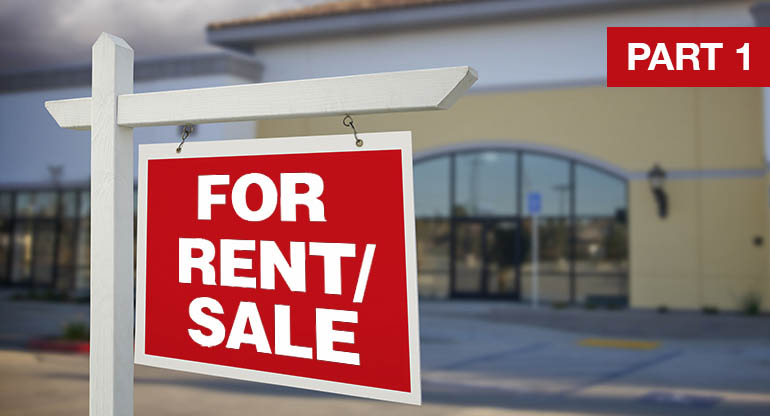
Buy or Rent: An Entrepreneur’s Guide to Securing Workspace, Workers and Equipment: Part One
Running a small business forces entrepreneurs to answer a lot of questions. One of the most challenging conundrums they have to confront is whether to buy or rent their essential resources, and it’s a question that cuts across many aspects of a business. Whether it’s office space, employees, equipment or technology, determining whether to make long-term investments in infrastructure or to preserve cash flow and mobility can be a trying decision. Let’s take a closer look at the economics, benefits and drawbacks of buying versus leasing in these four essential areas, starting with facilities and workforce.

Buying or Leasing Home Base
Office or production space is an essential component of any entrepreneurial enterprise and there are many factors to consider when making the decision to lease or buy a business facility.
There are generally two sides to this equation. The primary advantage of leasing a business facility is that the preliminary cash output is almost always less than it is for buying a place. However, the primary advantage of buying a facility is paying out less in the long term than you would pay with a lease. You also get the benefit of any appreciation, and can use the property as collateral against business loans.
The secondary advantages of leasing a property are multifold. If your current cash flow is of vital importance either to the operation or growth of your business, leasing is the way to go. Leasing also frees you up from any pesky maintenance issues. Meanwhile, leasing a business facility also preserves your company’s mobility should you experience growth, better-suited properties, or need to locate closer to your target market.
Secondary considerations for buying a business facility include the fact that buying leaves you vulnerable to fluctuating real estate markets. However, if you intend to make substantial changes to your facility—for production or other unique activities, for example—buying may offer advantages over negotiating with a landlord. Some entrepreneurs also find that the type of property they need for their entrepreneurial enterprise simply doesn’t exist in the lease market, and so are forced to purchase a facility. A purchase can also bring tax savings and other financial benefits.
A third way forward for entrepreneurs that are technologically and physically mobile is to use a virtual office. There are several reputable companies in the U.S. that offer reputable business addresses, mail-handling and assistant services, and pop-up meeting rooms and office space, all without the significant expense of buying or leasing a business facility. This way, entrepreneurs who don’t need the trappings of a physical office can still enjoy the benefits of an office while working from anywhere.

Employees Vs. Contractors
Hiring help is always a tricky problem, especially for entrepreneurial businesses that aren’t yet fully established. That means you may not know how much help you really need, the types of skills that would be most beneficial, or how the sales cycle in your market fluctuates throughout the year.
For these reasons, it’s best to be conservative until you are on solid financial footing. The most logical alternative to hiring full-time employees is to use contractors or freelancers. If you do use contractors, it’s important to interview and screen them just like you would any other employee.
There are also a couple of alternatives to using freelancers. First, you can contact a local university to retain an intern or two to help with marketing, research, administrative help, or other resume-building experience. There are also services that offer virtual employees to help with outreach, marketing, administrative duties, appointment-setting and more, all for a fraction of what a single full-time employee would cost.
Now that you have a sense of what big ticket items like office space and hired help are going to cost you, in the second part of this series (which will be posted next month), we’ll zero in on office equipment and technology, and the critical decision whether to rent or buy.
